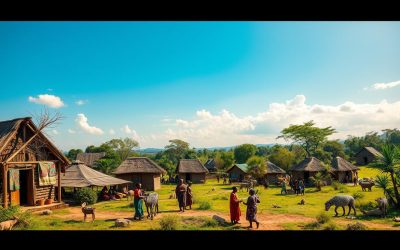✓ Accommodations✓ Flights✓ Rental Cars
Did you know that in the Central African Republic, cash is king? With ATMs virtually nonexistent outside major cities like Bangui, travelers must prepare carefully for their trip. This country operates on the Central African CFA franc, and most transactions are cash-only, making it essential to plan ahead.
Credit card acceptance is extremely limited, even in urban areas. While Bangui offers some currency exchange services, the process can be costly and time-consuming. Understanding the local monetary practices will help you navigate your journey smoothly.
This guide will walk you through everything you need to know about handling money in this unique destination. From safety tips to cultural nuances, we’ve got you covered. Keep reading to ensure you’re fully prepared for your adventure.
Understanding the Currency Landscape in Central African Republic
Understanding the local currency system is crucial for a smooth trip. The official currency here is the Central African CFA franc, divided into 100 centimes. This currency is widely used across the region, but it’s essential to know its value and structure before your journey.
Central African CFA Franc and Cash Economy
The country operates primarily as a cash economy. Digital payments and credit cards are extremely limited, even in urban areas like Bangui. This means you’ll need to carry enough cash for daily expenses, from meals to transportation.
Here’s a quick breakdown of the CFA franc:
| Denomination | Value in USD (Approx.) |
|---|---|
| 500 CFA | $0.85 |
| 1,000 CFA | $1.70 |
| 5,000 CFA | $8.50 |
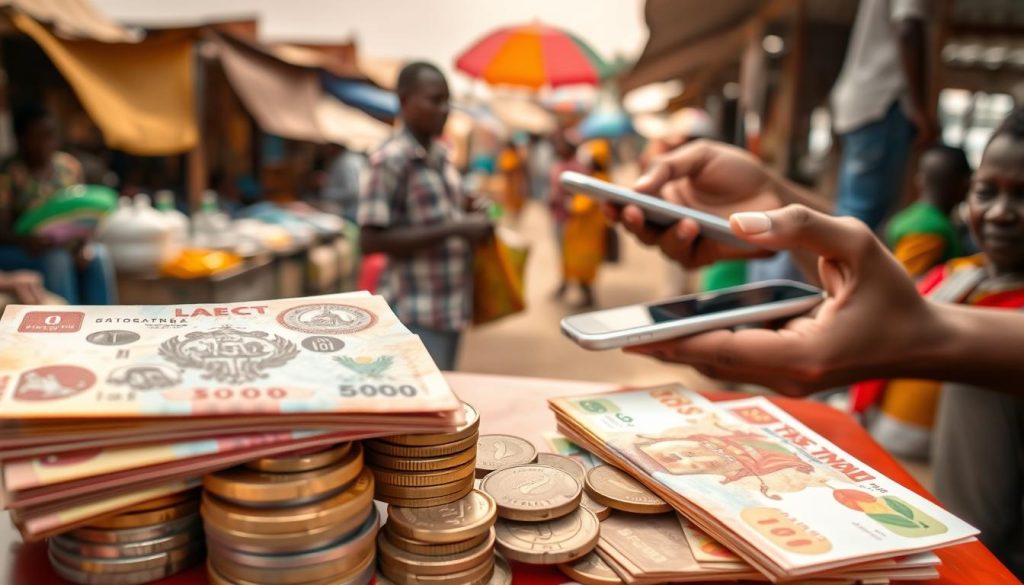
Challenges with ATMs and Currency Exchange
Finding ATMs outside major cities like Bangui and Berberati can be difficult. Even in these areas, machines may run out of cash or charge high fees. Currency exchange services are available but often come with steep commissions.
Here are some tips to manage your money safely:
- Carry enough cash for your entire trip.
- Use reputable exchange services in urban centers.
- Avoid displaying large amounts of money in public.
By planning ahead, you can navigate the financial challenges of this unique destination with confidence.
Payment Methods and Accessibility for Travelers
Navigating payment methods in this region requires careful planning. While some urban areas offer limited card options, cash remains the primary mode of transaction. Understanding this system will help you avoid unnecessary stress during your trip.
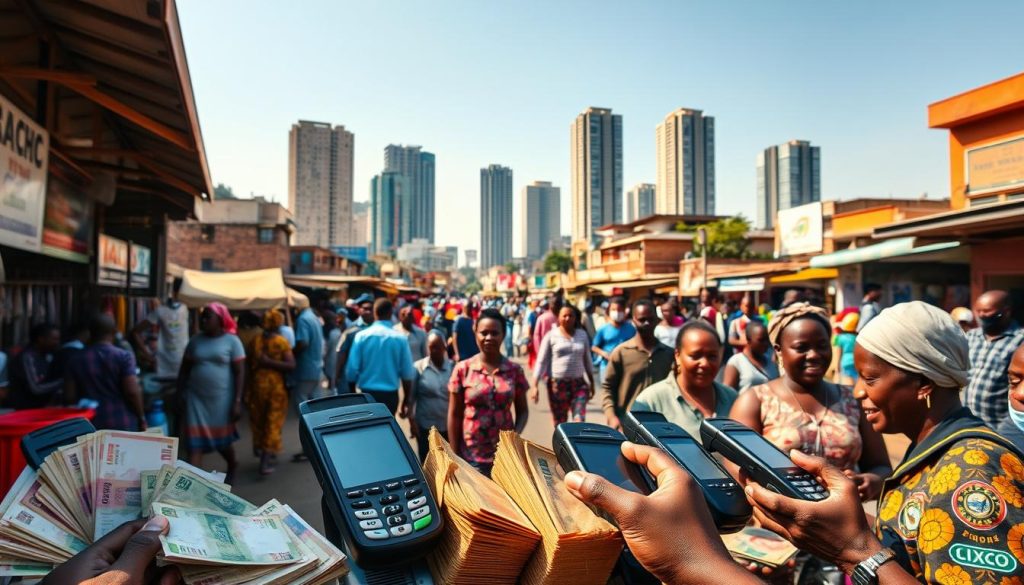
Credit Card Limitations and Cash-Only Transactions
Credit card usage is extremely limited outside major hotels in the capital. Most small businesses and local vendors rely solely on cash. This means you’ll need to carry enough local currency for daily expenses like meals, transportation, and souvenirs.
Here’s why cash is king here:
- Digital payment systems are not widely adopted.
- ATMs are scarce and often unreliable outside urban centers.
- Currency exchange services may charge high fees.
To manage your money effectively, plan cash withdrawals in advance. Use reputable exchange services in the city to avoid scams. Always carry smaller denominations for convenience.
By preparing ahead, you can ensure a smooth and hassle-free travel experience. Remember, having enough local currency is key to enjoying your journey without interruptions.
Central African Republic: Ultimate Travelers Guide to Currencies & Payments
Handling money in this region requires careful preparation and understanding. The country operates on a cash-based system, making it essential to plan ahead. Credit card acceptance is extremely limited, even in urban areas like the capital. This means you’ll need to rely on local currency for most transactions.
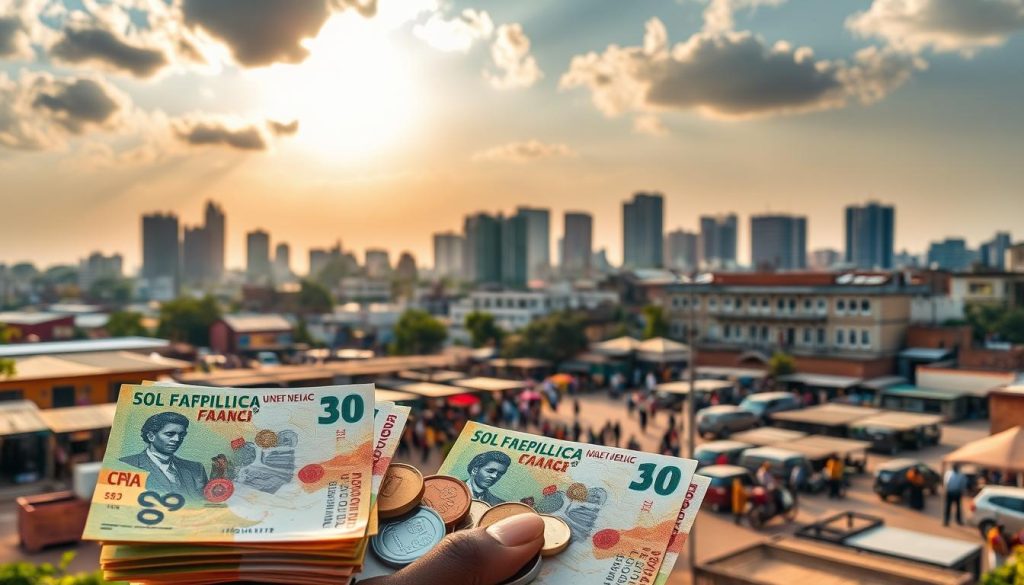
Here’s a quick recap of what you need to know:
Carry enough cash for your entire trip, as ATMs are scarce and often unreliable. Use reputable exchange services in the city to avoid high fees. Smaller denominations are handy for daily expenses like meals and transportation.
Understanding these challenges will help you navigate the financial landscape with confidence. By preparing ahead, you can focus on enjoying your journey without interruptions. Next, we’ll explore safety tips and practical advice to ensure a smooth experience.
Navigating Safety and Security Concerns
Safety is a top priority when traveling in the Central African Republic. The country faces unique challenges, including high crime rates and frequent security incidents. Being aware of these risks and taking precautions can help ensure a smooth and enjoyable trip.
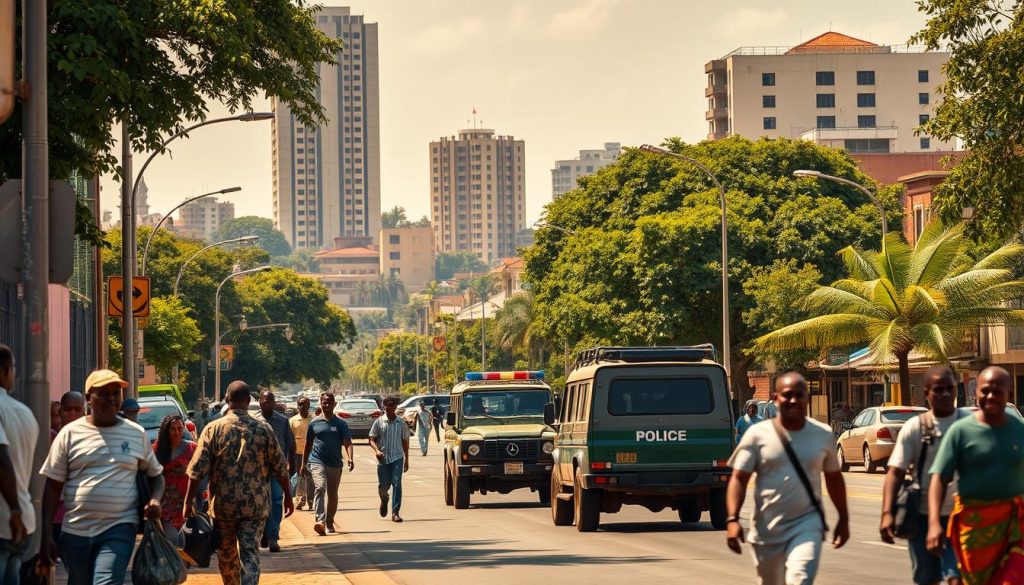
Travel Safety in Bangui and Beyond
Bangui, the capital, is particularly volatile. Armed groups and frequent roadblocks are common. Avoid high-risk neighborhoods like PK5, where crime rates are higher. Stay informed about local conditions and follow advice from trusted sources.
Outside the city, rebel activity and armed patrols pose additional risks. Stick to well-traveled routes and avoid remote areas. Always carry identification and emergency contact information.
Risk Areas, Night Travel, and Curfews
Night travel is strongly discouraged. Many areas enforce curfews, which can disrupt your plans. Plan your activities during daylight hours and stay in secure accommodations after dark.
Large gatherings and protests should also be avoided. These can escalate quickly and become dangerous. Stay alert to sudden changes in the security situation.
Women’s Safety and Personal Security Tips
Women travelers should take extra precautions. Dress modestly and avoid walking alone, especially at night. Keep valuables secure and carry only essential items.
Harassment can occur, so stay confident and assertive. If you feel unsafe, seek help from local authorities or your embassy. Always trust your instincts and prioritize your well-being.
By staying informed and prepared, you can navigate the country’s challenges with confidence. Your safety is key to enjoying your journey.
Mastering Health Precautions and Vaccination Requirements
Health is a top priority when visiting the Central African Republic. The country has unique health risks that require careful preparation. By taking the right precautions, you can ensure a safe and enjoyable trip.
Essential Vaccinations and Health Measures
Before traveling, ensure you’re up-to-date on essential vaccinations. The yellow fever vaccine is mandatory for entry and protects against a serious disease. Other recommended vaccines include hepatitis A and B, typhoid, and meningococcus.
Malaria is widespread in the country, so prophylaxis is crucial. Consult your doctor for the right medication and start taking it before your trip. Carry a copy of your vaccination records and prescriptions for added safety.
| Vaccine | Purpose |
|---|---|
| Yellow Fever | Mandatory for entry |
| Hepatitis A & B | Prevents liver infections |
| Typhoid | Protects against food and waterborne illness |
| Meningococcus | Prevents meningitis |
Safe Food, Water, and Insect Bite Prevention
Food and water safety are critical. Avoid tap water unless it’s boiled, filtered, or chemically disinfected. Stick to bottled water and avoid raw or undercooked foods. Peel fruits yourself to ensure they’re safe to eat.
Insect bites can transmit diseases like malaria and dengue. Use insect repellent with DEET and wear long-sleeved clothing. Sleep under mosquito nets, especially in rural areas.
Medical facilities in the country are limited, so carry a well-stocked first aid kit. Include medications for common illnesses and any personal prescriptions. By taking these steps, you can stay healthy and focus on enjoying your journey.
Remember, your health is key to a successful trip. Plan ahead, stay informed, and take the necessary precautions to ensure a safe and memorable experience.
Visa, Passport, and Entry Requirements
Planning your trip to the Central African Republic starts with understanding its entry requirements. Proper documentation is essential to ensure a smooth arrival and avoid delays. This section outlines what you need to know about visas, passports, and regional entry protocols.
Documentation Essentials for US Citizens
If you’re a US citizen, you’ll need a valid passport to enter the country. Your passport must be valid for at least six months from your arrival date. For stays up to 180 days, a visa is not required. However, longer stays may require additional documentation.
Always carry a copy of your passport and other important documents. This can help in case of loss or theft. Be prepared for potential checks at entry points, as authorities may verify your travel details.
Regional Variations and Entry Protocols
Entry requirements vary depending on your nationality. Citizens of African Union, Commonwealth, and La Francophonie member countries can stay visa-free for up to 30 days. Others may need to apply for a visa in advance or obtain one upon arrival.
Here’s a quick overview of visa requirements for different nationalities:
| Nationality | Visa Requirement |
|---|---|
| US Citizens | Not required for stays up to 180 days |
| African Union Members | Visa-free for 30 days |
| Other Nationalities | Visa required or on arrival |
Ensure your passport has at least two blank pages for entry and exit stamps. Some regions may require additional documentation, so check with your embassy before traveling.
By preparing the right documents and understanding regional protocols, you can avoid entry delays and focus on enjoying your journey. Always stay informed about the latest requirements to ensure a hassle-free experience.
Understanding Local Customs and Business Etiquette
Respecting local traditions is key to a positive experience in this region. The country values cultural sensitivity, and understanding these norms will help you connect with locals effectively. From dress codes to meal etiquette, small gestures can make a big difference.
Cultural Sensitivity and Dress Code Recommendations
Dressing modestly is highly appreciated, especially for women. Avoid revealing clothing and opt for conservative outfits. This shows respect for local values and helps you blend in seamlessly.
Meal etiquette is another important aspect. Always use your right hand for eating or passing items, as the left hand is considered unclean. When invited to a meal, wait for the host to start before you begin eating.
Language and Business Etiquette
French is the primary language for business communication. If you’re not fluent, consider hiring an interpreter. This ensures clear communication and demonstrates professionalism.
When attending business meetings, punctuality is appreciated. Greet everyone with a handshake and maintain a formal tone. Building trust is crucial, so take time to establish rapport before diving into business discussions.
Photography and Respectful Interactions
Always seek permission before taking photos, especially of people or sensitive sites like government buildings. Some areas may have restrictions, so it’s best to ask first.
By showing cultural sensitivity, you’ll gain the respect of local communities and avoid unintended offenses. These small efforts can make your journey more enjoyable and meaningful.
Conclusion
Exploring this unique destination requires careful preparation and attention to detail. From handling cash-only transactions to navigating limited ATMs, understanding the local financial system is essential. Safety and health precautions, such as staying updated on vaccinations and avoiding high-risk areas, are equally important.
Proper documentation, including a valid passport and necessary visas, ensures a smooth entry. The country’s challenges, like strict local laws and regional security concerns, highlight the need for thorough planning. Use this guide as a comprehensive resource to stay informed and prepared.
By following these tips, you can focus on enjoying your journey with confidence. Preparation is key to making your experience safe, enjoyable, and memorable.
The above is subject to change.
Check back often to TRAVEL.COM for the latest travel tips and deals.






